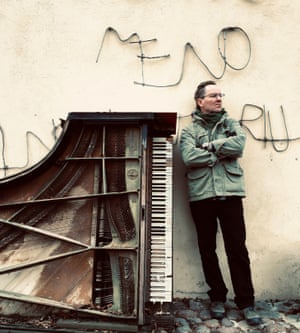
Bach, Mozart and Beethoven all thrilled audiences with their spontaneous improvisations. But today’s classical pianists have lost the art, according to a music scholar, who argues that performances suffer because they are so dependent on the printed score.
John Mortensen claims that such improvisation skills were all but lost by the 20th century and that few classically trained musicians can now do so in any style.
He told the Observer: “There is something stultifying about a tradition where millions of pianists are all playing the same 100 compositions. The way we’ve developed musicians is falling apart, as it was designed for a very narrow outcome – preserving and perfecting the canonic repertoire.
“When you say everyone has to play a Bach prelude and fugue, a Beethoven sonata, a Chopin nocturne, and we’ll do that until the end of the world, something in our soul dies.”
Mortensen, professor of piano at Cedarville University in Ohio, added: “Now students are looking for a different, more flexible form of musicianship, and the schools are, by and large, not prepared to offer that.”
Piano professor John Mortensen: ‘The whole way we’ve developed musicians is falling apart.’ Photograph: Rick Nickerson
He singled out Bach as “a composer, performer and improviser” who could create elaborate fugues on the spot. Then there was Beethoven, he said, who humiliated fellow German Daniel Steibelt, one of Europe’s most renowned piano virtuosos, “by riffing upon and exposing the weakness of the latter’s inferior tunes”. Steibelt is said to have been so humiliated, he stormed out of the room.
This month, Oxford University Press is publishing Mortensen’s forthcoming book, The Pianist’s Guide to Historic Improvisation. He writes: “Bach could improvise fugues not because he was unique, but because almost any properly trained keyboard player in his day could. It was built into their musical thinking from the very beginning of their training.” He argues that even veteran concert artists today are “beginners at improvisation”: “Those who attend collegiate music schools spend nearly all their time and effort on learning, perfecting and reciting masterpieces from the standard repertoire.”
Mortensen has dedicated his career to “perfecting and reciting masterpieces of the repertoire”, but he is also a performer who improvises complete fugues and other pieces in 18th-century styles. He teaches courses and workshops in classical improvisation at many colleges, including the Royal Northern College of Music in Manchester (RNCM).
He said he had spoken to numerous music students in Britain and America who wanted to explore improvisation as well as remaining faithful to the standard classical repertoire. He believes that such performances would particularly attract young people.
However, he spoke of resistance from purists and those embarrassed by their own inability to improvise. One professor told him he would not be invited to their campus as the senior professor “can’t improvise”.
On hearing of Mortensen’s views, pianist Steven Osborne said: “I largely agree. When I was at the RNCM, I wanted to put improvisation into one of my programmes. My teacher tried to stop me, saying, ‘They won’t take you seriously.’” I was stubborn. There was a sense that improvisation is not serious
music.” But he senses that improvisation is coming back into some colleges, including the Royal Conservatoire of Scotland in Glasgow: “Individuals are pushing improvisation because they recognise how it can deepen musicianship.”
He argued that composers in centuries past were performers, and solo performers were generally composers: “The distinctions would seem pretty artificial to them. They were all improvisers. There’s been an increased specialisation over the past 200 years. Now it’s rare that performers are composers or improvisers, which can have a stultifying effect on the music if it’s treated like a museum piece. To have experience of improvising, to find that sense of what spontaneously comes out of you, has put so much energy and emotion into my classical playing.”
Mortensen said: “What I really enjoy is the idea that a performance can go anywhere. That’s the ultimate adventure.”






